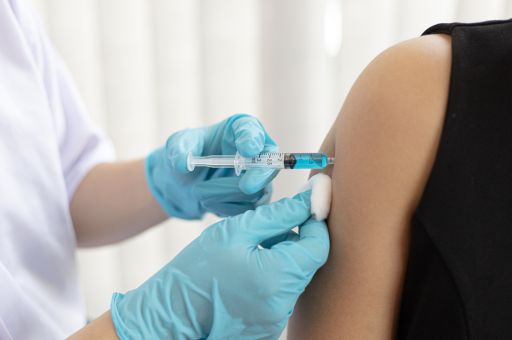Spain became one of the leaders in vaccination against COVID-19 after the implementation, at the end of 2020, of a common strategy based on a safe, effective, voluntary and free vaccine. Vaccination is now recommended for population groups at higher risk of complications and for staff in essential services.
In December 2020, the Spanish Government published a web page on the COVID-19 Vaccination Strategy to resolve citizens’ doubts about the vaccine with official and updated information and clear language. This article summarises the most relevant contents of this website, which also includes the vaccination recommendations for the 2024-2025 season.
TDB keeps you informed. Follow us on Facebook, Twitter and Instagram
COVID-19 vaccination: key strategy and current recommendations
Key Points of the COVID-19 Vaccination Strategy
The Interterritorial Council of the National Health System, where the Ministry of Health and the Autonomous Communities are represented, decided on 9 September 2020 that a single COVID-19 vaccination strategy would be implemented in Spain. A technical and multidisciplinary working group developed this strategy. Scientific societies, professional and patient associations and professional associations reviewed the document. On 24 November, the government presented a strategy based on a safe, effective, voluntary and free vaccine.
Vaccination against the new coronavirus began on 27 December 2020 in all autonomous communities. The vaccines arrived progressively, so from the beginning, an order of priority was established to vaccinate the population-based mainly on the risk of severe disease and exposure.
The European Commission authorised all the vaccines available in Spain following a favourable opinion from the European Medicines Agency. To reinforce the protection of the most vulnerable as soon as possible, the choice of vaccine was not an individual decision but was based on the efficacy and indication of the vaccines for the different population groups.COVID-19 Vaccination Strategy.
In December 2020, the Spanish Government published a web page on the COVID-19 Vaccination Strategy in order to resolve, with official and updated information and in clear language, the public’s doubts about the vaccine. The most relevant contents of this website are summarised in this article, which also includes the vaccination recommendations for the 2024-2025 season.
Key points of the COVID-19 Vaccination Strategy
The Interterritorial Council of the National Health System, where the Ministry of Health and the Autonomous Communities are represented, decided on 9 September 2020 that a single vaccination strategy against COVID-19 would be implemented in Spain. A technical and multidisciplinary working group developed this strategy. Scientific societies, professional and patient associations and professional associations reviewed the document. On 24 November, the government presented a strategy based on a safe, effective, voluntary and free vaccine.
Vaccination against the new coronavirus began on 27 December 2020 in all autonomous communities. The vaccines arrived progressively, so from the beginning, an order of priority was established to vaccinate the population-based mainly on the risk of severe disease and exposure.
The European Commission authorised all vaccines available in Spain following a favourable opinion from the European Medicines Agency. In order to reinforce the protection of the most vulnerable as soon as possible, the choice of vaccine was not an individual decision but was based on the efficacy and indication of the vaccines for the different population groups.
Stages of COVID-19 vaccination
According to the latest available data, more than 40 million people are fully vaccinated in Spain, i.e. 86% of the total population. The world average is around 65%, and the European Union average is around 73.5%.
According to experts, the reasons for the success of the vaccination strategy in Spain are many and varied: trust in doctors and scientists and in a universal public health system; access to vaccines according to ethical principles and clear criteria communicated with transparency; the smooth functioning of the system of appointments to administer the vaccine; the importance of intergenerational family ties and social contact; a high perception of risk and the reduced weight of anti-vaccine groups; and the combination of the non-compulsory nature of the vaccine with the progressive elimination of restrictions as cases of the disease decrease.
